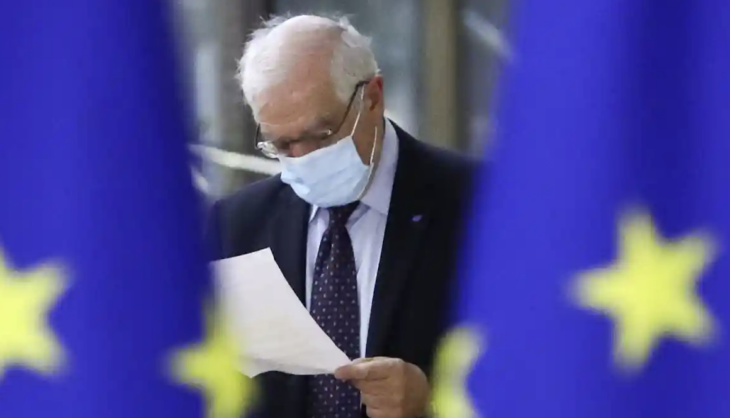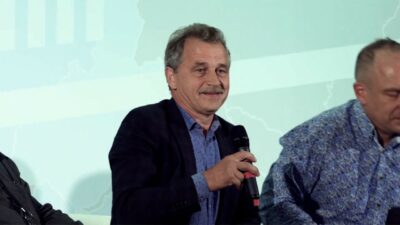Kremlin has rejected diplomacy over Alexei Navalny imprisonment, says EU foreign chief ahead of meeting

Russia must be met with “united and determined” action over the imprisonment of the opposition leader Alexei Navalny, the EU’s foreign affairs chief, Josep Borrell, has said ahead of ministerial discussions on sanctions.
Borrell, a former Spanish foreign minister, who was widely seen as being humiliated during a press conference with his Russian counterpart in Moscow earlier this month, said the Kremlin had rejected a diplomatic way out of the crisis.
Speaking before a meeting of foreign ministers in Brussels on Monday, where a number of member states are expected to push for work to start on targeting individuals, potentially on human rights grounds, Borrell signalled a hardening of his own position.
“It is clear that Russia is on a confrontational course with the EU. In the case of Mr Navalny, there is a blunt refusal to respect the engagement, including refusal to take into account the decisions of the European court of human rights,” he said. “It is going to be an important discussion of foreign affairs ministers as how to react to this and I hope we will do it in a united and determined way.”
Navalny’s two-and-a-half-year prison sentence for violating the terms of his parole while recovering in Germany from an attempted assassination attempt was confirmed by a Russian appeal court on Friday.
Russia has said it will ignore a ruling from the European court of human rights that Navalny should be released due to a lack of safeguards over his safety despite the government’s requirement to comply as a member of the Council of Europe.
The Kremlin responded by calling the court’s decision “blatant and gross interference in the judicial affairs of a sovereign state”.
The EU’s 27 heads of state and government are due to debate the bloc’s relationship with Russia at a summit next month but there is now growing pressure internally and externally for the bloc to act.
Ministers and ambassadors for the member states met Navalny’s chief of staff, Leonid Volkov, and Ivan Zhdanov, the chief executive of the opposition leader’s anti-corruption foundation, on Sunday.
Gabrielius Landsbergis, Lithuania’s minister of foreign affairs, said there was clear evidence that sanctions could have a meaningful impact. The EU adopted a so-called European Magnitsky Act this year taking powers to freeze assets and impose travel bans on individuals involved in human rights abuses.
Landsbergis said: “We cannot turn a blind eye to blatant breaches of human rights violations in Russia. Continuous threatening from Russian authorities to sever ties with the European Union, the brutality of police and military against media, defenders of human rights and civil society indicate the regime’s fear of a change. The bigger is the circle of Kremlin-related perpetrators sanctioned, the bigger is the effect of sanctions.”
Germany’s foreign minister, Heiko Maas, said: “I am in favour of ordering the preparation of additional listing of sanctions of specific persons. At the same time we need to find ways to keep the communication channels with Moscow open.”
Earlier this month, Borrell, the EU’s high representative for foreign affairs, faced calls to resign after he failed to respond to claims from Russia’s foreign minister, Sergey Lavrov, during a press conference, that the EU had been “an unreliable partner”. Borrell had instead spoken of his hope that the Russian Sputnik V vaccine would be approved for EU use.
Shortly after the meeting, three diplomats from EU member states were expelled from Russia on the disputed grounds that they had attended the nationwide protests against Navalny’s imprisonment.
Borrell belatedly criticised the “aggressively staged” press conference and expulsions but concerns have been raised by MEPs over weak leadership. In 2019, Borrell had described foreign affairs ministerial meetings as a “valley of tears” that has “very little capacity to influence world affairs”.
Meanwhile, the council of ministers issued a statement on Monday condemning the military coup carried out in Myanmar this month “in the strongest terms, and stressed that the EU stands with the Burmese people”.
“While the EU is ready to support dialogue with all key stakeholders to resolve the situation, the council stated that the EU stands ready to adopt restrictive measures targeting those directly responsible for the military coup and their economic interests,” the statement said.



